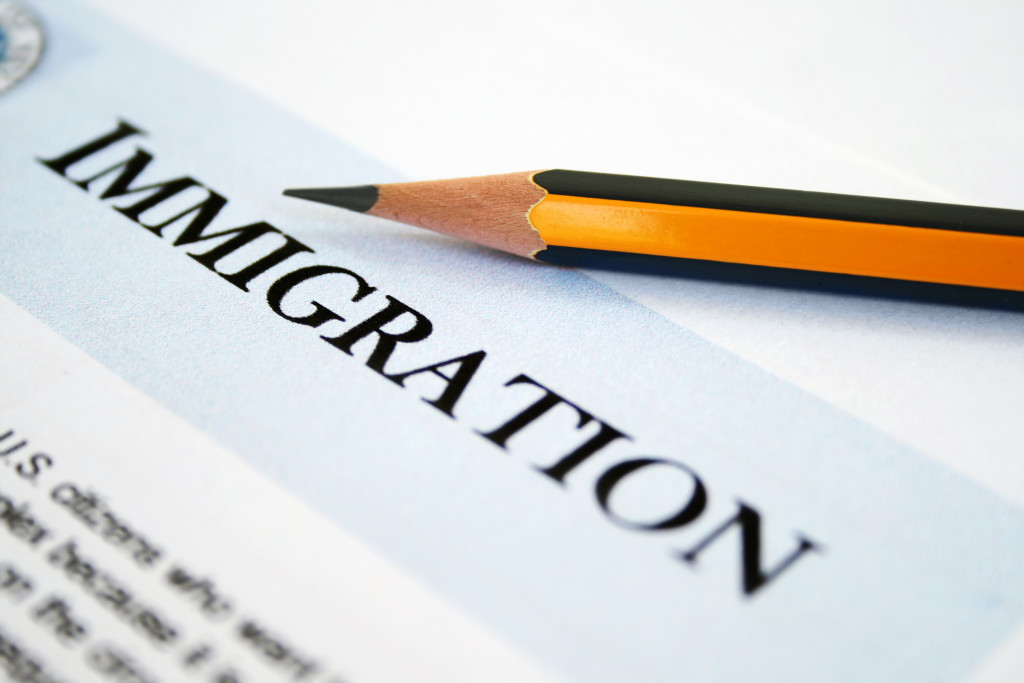- Researching immigration laws and regulations is essential for a successful relocation and should be done with an experienced lawyer.
- Knowing and understanding language and cultural norms helps to ensure respect for diversity and appropriate interactions.
- One should consider the cost of living in the new country before relocating to ensure that they have enough money.
- Access to essential services such as healthcare should be researched so one can adequately access these resources when they arrive.
Immigrating to a new country is an exciting experience, but it can also be daunting. Not only do you have to adjust to a different culture and language, but you also need to understand the legal aspects of becoming a resident or citizen of your chosen destination. By planning and preparing for life in your new country, you can make sure that your transition goes smoothly – allowing you to take full advantage of all the opportunities available when living abroad!
Legal matters
When immigrating, it is essential to consider legal matters and the necessary steps to achieve a successful relocation. Keeping up to date with laws and regulations regarding immigration is pivotal when establishing oneself in a new country.
There are many complexities involved in the immigration process, which can only be managed through research and expert consultation. Immigration lawyers specialize in detailed information relating to visas, applications, appeals, and deportation proceedings.
These influential advisors provide tailored services, so it’s beneficial to find an experienced immigration lawyer offering free consultations as soon as possible. This is especially true if you’re looking for complete confidence that your migration will be successful without any unnecessary risks or setbacks.
Adjustment considerations
Here are some adjustment considerations you need to know when immigrating:
Language and culture
When considering immigration, the language and culture of a new country should not be overlooked. It is essential to make sure that you are familiar with the language and customs of the new area before relocation, as it can make for a smoother transition into the new life.
Knowing how to communicate in common everyday language and proficiency in any required business or technical jargon guarantees success in social interactions, client relations, and job performance.
Understanding the cultural norms to ensure respect for diversity and navigate interactions appropriately is also necessary. Suppose someone from another country begins to assimilate their own culture when relocating. In that case, they will struggle personally and could offend the local population with misunderstandings or mistakenly considered offenses.
The cost of living in the new country

Immigrating to a new country is an exciting experience, but it is essential to consider the cost of living before making a move. There can be a significant discrepancy between the cost of regular expenses in one’s current country and the new one, especially with rent and food costs. It is essential to consider taxes and other potential fees, such as transport, insurance, and utilities, that might have yet to be initially expected or factored in.
Researching the particular city and area you are moving to can aid in creating a more accurate budget for how much money will be needed to live comfortably. It would be especially wise to create a secondary emergency fund in case of unforeseen costs once you have settled into your new residence. It is also beneficial if enough money is saved so you will have time to get used to your new way of living without being overwhelmed financially.
Access to health care and other services

Regarding immigration, access to healthcare and other essential services should not be overlooked. Access to these resources can make the transition easier while helping protect the well-being of immigrants. It is necessary to consider how well an individual will be cared for in a new location when deciding to move to ensure that the health of people moving to a new location is not compromised.
This can be achieved by researching if healthcare is accessible and affordable in the new location and familiarizing oneself with local clinics. Knowing about local laws and regulations concerning services for members of different populations can also help ensure any possible rights will be respected.
Employment opportunities
It is essential to consider the employment opportunities available when immigrating to a new country. With stable employment, it can be easier to keep up with living costs and access critical resources while living abroad.
Additionally, having a job can help provide security, not only financially but also culturally; existing in an environment surrounded by supportive co-workers and colleagues is a great way to establish roots in your new home. Therefore, taking the time to research and explore various career prospects about your skills or qualification before immigration can benefit you and your family.
Education for dependents, if applicable

Education is essential to consider when immigrating, especially if you bring your dependents. Knowing the available educational options ahead of time can make a major difference in settling into your new country. Families should think about the various types of schools that are accessible in the area and determine which ones can offer their children a quality education.
It’s also important to look into tuition costs and other expenses related to education, along with understanding any potential language adjustments that may be needed. Familiarizing yourself with the credentials expected by different academic providers is also paramount–particularly when applying for higher education or transitioning into professional roles.
These are just a few of the considerations necessary when immigrating. It is important to understand the complexities involved in relocation and plan for a successful transition.

